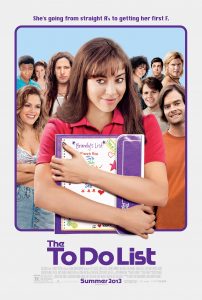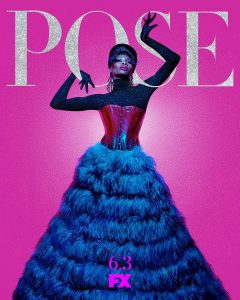By: Beatriz Fernandes, Kim Regala, and Winona Young
 Abortion in The Obvious Child
Abortion in The Obvious Child
It’s the classic story of boy meets girl, girl gets pregnant, and girl decides to have an abortion within the first 15 minutes of the movie. What’s even more surprising? She doesn’t change her mind, and no one tries to. Starring the lovely Jenny Slate as a struggling comedian, her character Brandy tries to figure out what to do with her life, her comedy, and herself as she tries to dodge the romantic feelings for her one-night-stand baby daddy (Jake Lacy).
What’s most refreshing about this film is that it isn’t simply reduced to “an abortion film.” It’s first and foremost a romantic comedy. While yes, Brandy’s abortion is a key point in the story, her character isn’t centred around that fact. Our protagonist is unabashed, funny, full of heart, and an over-thinker who has all the grace of a conventional rom-com lead.
In the Obvious Child, abortion is not a horror, it’s not a death-sentence — it’s a simple health decision that is treated as unremarkably as any other mundane trip to the doctor’s office. Here, it’s normalised and not at all stigmatised, which makes the budding romance and journey of Jenny Slate’s character even more heartwarming. – WY
 Female masturbation & sexuality in The To-Do List
Female masturbation & sexuality in The To-Do List
Embarking on a comedic ride, the To-Do List has provided women the opportunity to follow a young woman’s shameless sexual journey. The main character, Brandy (played by Aubrey Plaza), takes charge of her sexuality whilst flawlessly portraying the confusion and vulnerability most teenagers experience as they begin their sexual lives. This movie is truly progressive, especially in its portrayal of female masturbation. Often considered a myth, taboo, or simply an avoided topic, there is an almost nonchalant attitude towards masturbation in this movie. The film’s normalization of female masturbation helps show that masturbation isn’t done exclusively by men. The To-Do List emphasizes that it isn’t a shameful act, but rather a crucial and primary part of understanding one’s sexuality.
There is much way to be made in films overall when it comes to portraying women as self-sufficient individuals, willing and proud to explore sexually. Under a comedic light, the To-Do List gives a raunchy, rom-com portrayal of a young woman’s sexual journey that you don’t want to miss. – BF
 Asexuality in Bojack Horseman
Asexuality in Bojack Horseman
Mainstream television still has a long way to go in the representation of all genders and sexuality. However, when BoJack Horseman revealed that one of their characters, Todd Chavez, was asexual, it was like finding the light at the end of a very dark tunnel. Asexuality is often underrepresented in the media. And I mean, why wouldn’t it be when sex clearly sells? While there are the rare cases that shows do incorporate asexual characters, these individuals are only portrayed as such and nothing more.
However, Todd was never just that asexual guy; instead, he is a main character who, like the others, has a fleshed-out personality. While there are many hints surrounding his sexuality, or rather his lack thereof, it wasn’t until the later seasons when this discovery becomes a narrative of its own. The show doesn’t shy away from the emotional depth in his story arc, as we follow his journey to understanding himself and what it means to be asexual. While it isn’t entirely perfect in its portrayal, BoJack Horseman provides a genuine representation, using Todd to include and validate the experiences and identities of ace people, as opposed to speaking for all those within the ace community. – KR
 Living with HIV, in Pose
Living with HIV, in Pose
Set in the bumping New York City club scene in the late 80s, Pose is the FX show that is just as diverse as the reality it’s based on. Featuring leading trans* woman (and is played by trans* actress Mj Rodriguez), Blanca Evangelista, the episodes follow her journey (along with five other trans characters!) as she navigates climbing to the drag/club scene in NYC. And on something of a sidenote, Blanca is diagnosed with HIV in the first 20 minutes of the show.
I purposefully mention this as a fact following her main journey because the show treats it as such. While yes, the show does not shy away from the grim reality a diagnosis of HIV was in the 80s, it is not Blanca’s entire character. Hell, Blanca herself makes sure that it isn’t. Even as it already carries such a diverse cast of characters, Pose does not pull back in unabashedly revelling in these character’s struggles, but also their triumphs. Blanca living with HIV is exactly that. She does not condemn herself as a dead woman walking: she focuses on her dreams, on taking care of other characters, and on so much more. The show handles Blanca’s illness with respect, but most importantly, doesn’t dwell on it as a tragedy. – WY




